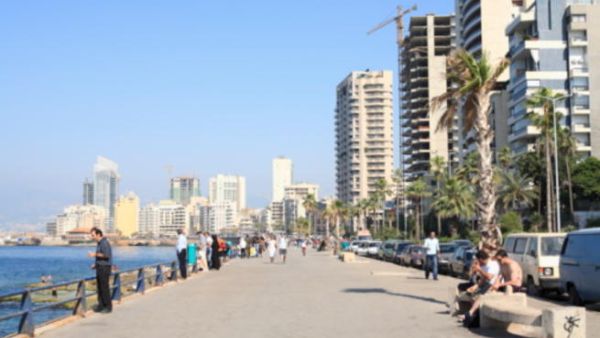Layoffs, slumping tourism, falling construction activity and declining remittances from Lebanese expatriates have marred the performance of the economy of Lebanon in 2011, according to a United Nations report released Tuesday. “The country has also experienced a substantial decrease in financial accounts,” said the U.N.
Economic and Social Commission for Western Asia’s flagship report titled “Survey of Economic and Social Developments in 2010-2011,” which was launched in Beirut Tuesday. “This was a result of the halving of outward investments and a substantial drop in portfolio investments in the country,” the report said, adding that “investors were either reluctant to invest or were even disinvesting their capital.”
At the same time, remittances sent home by Lebanese expatriates shrank significantly, the report said. “After peaking at $7.5 billion in 2009, remittances inflows to Lebanon declined to $5.1 billion in 2010,” the report said. It warned that inflation would accelerate as a recently enacted wage hike becomes effective in February.
The Cabinet decided in mid-January to raise the minimum wage to LL675,000, increasing it by LL175,000. Employees will receive an increase ranging from LL175,000 – for those earning the minimum monthly wage – up to LL299,000 – for salaries above LL1.5 million. The measure has raised concerns about inflation rates. Additionally, the ever-increasing public debt could have negative repercussions, the report warned.
This is particularly relevant given that public debt continues to be dominated by domestic currency, which puts constrains on monetary policy decisions, affecting interest rates.
Rising interest rates would increase debt servicing in Lebanon, as well as Egypt and Jordan, thereby burdening fiscal balances and forcing governments either to borrow more or conduct contractionary fiscal policies.
The report highlights the potential of complementary economic policies between three subgroups in the region: oil-exporting countries, more diversified economies and least developed countries, especially in the fiscal sector.
“For example, MDEs experience a decreased average real gross domestic product growth (estimated at 2.7 percent in 2011, compared to 3.8 percent in 2010), while Gulf Cooperation Council countries continue on a steady growth pattern from 4.1 percent average real GDP growth in 2010 to 6.1 percent in 2011,” the report said, calling for implementing intra-regional investments, especially in real productive sectors.
The report also recommends the adoption of a new development model based on economic diversification, enhanced competition and competitiveness and deeper regional integration.
It suggests that the region’s governments should launch a short-term job creation plan that utilizes available fiscal resources for investing both in social and productive infrastructure. Regional cooperation, it said, should primarily aim at introducing sustainable management of water and the agriculture sectors.
Such steps, it added, would also help create green jobs and reduce rural poverty, as well as enhance regional food security. According to the survey, high unemployment, particularly among the youth, continued to be a major cause behind social unrest in North Africa and western Asia.
“Coupled with ineffective social protection systems and overall political as well as economical exclusion the consequences for the region are severe. Youth unemployment rates in the region amount to two to three times more than the overall unemployment rates,” the report states.
It highlights the importance of deepening of financial markets in various countries to beef up investments. The full report can be accessed online at www.escwa.un.org.








